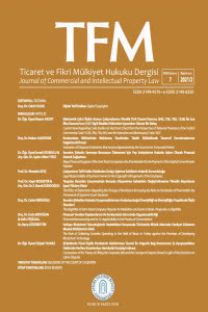TELEVİZYON PROGRAM FORMAT LİSANS SÖZLEŞMESİ
Küreselleşme ile birlikte gelişen medya sektöründeki özelleştirmeler sonucunda birçok televizyon kanalı açılmıştır. Birbirleri ile rekabet halinde olan televizyon kanallarının bu piyasada var olmasının yegâne yolu, yüksek rating alan programlar üretmesidir. Böylece yeni televizyon program formatları üretilmiş, formatlardan türeyen televizyon programları yayınlanmıştır. Beklenilenin üstünde başarı sergileyen bu formatlar, süreç içerisinde ithal ve/veya ihraç edilmeye, yabancı kişilerce üretilmeye yahut farklı ülkelerde üretilip yayınlanmaya başlanmıştır. Rekabetin acımasız yüzünün görüldüğü medya endüstrisinde başarı getiren formatlar, kopyalanmaya başlamıştır. Böylece formatların korunması meselesi gündeme gelmiştir. En etkili koruma olan telif hakkı korumasının formatlarda da geçerli olup olmadığı hususu tartışılmış; uzun bir süre formatlar telif hakkı korumasından mahrum kalmıştır. Ancak günümüzde, birçok hukuk sisteminde eski olan bu anlayışın terk edildiği görülmüştür. Yine de süreç, beklenenden çok yavaş işlemektedir. Bu eksikliğin giderilmesi amacıyla yapımcı ve format sahibi lisans sözleşmesi imzalamış; aranılan koruma ihtiyacına bu yol ile cevap bulmaya çalışmıştır. Bu çalışmada, ilk önce konu ile ilgili olan televizyon program format, eser kavramı tanımlanacak; formatların eser olarak nitelendirilmesinin mümkün olup olmadığına bir cevap aranacaktır. Akabinde, lisans sözleşmesinin tanımı yapılacak; unsurları, tarafları, hukukî niteliği, tarafların hak ve yükümlülükleri, benzer sözleşmelerden farkı ve sona erme halleri incelenecektir.
Anahtar Kelimeler:
Televizyon Program Formatları, , Eser, , Televizyon Programları, , Televizyon Program Format Lisans Sözleşmesi.
TELEVISION PROGRAMME FORMAT LICENCE AGREEMENT
Many television channels have opened as a result of privatization in the media sector that has develeloped with globalization. The only way for competitive television channels to surive in media market is to produce programs which get high ratings. Thus, new television programme formats were produced, television programs derived from these formats were broadcasted. Formats achieving great success beyond the expectations, have started to be imported and / or exported, produced by foreigners or produced and broadcasted in different countries within the process. Formats brought success in the media industry, where the brutal face of competition is seen, have begun to be copied. And this way, the issue of protection of formats has come up. It has been discussed that whether the most effective protection –copyright- is valid in formats or not; for a very long time, formats were deprived of copyright protection. However today, this understanding has been abandoned in many legal system. Still, the process is slower than expected. In order to aim to fill the gap, producers and format owners have signed licence agreement; have tried to find an answer to the protection need sought in this way. In this study, firstly, the television programme format, the concept of work will be defined; an answer will be sought whether it is possible to qualify the formats as works. Subsequently, the definition of the license agreement will be made; elements, parties, legal nature, rights and obligations of the parties, differences from similar contracts and termination conditions will be examined.
Keywords:
Television Programme Formats, , Work, , Television Programmes, , Television Programme Format Licence Agreements.,
___
- Ananeva, Anna Y. (2018, ‘Audiovisual Work Format as an Object of Copyrights in Russian and Foreign Legal Practice’ Russian Journal of Comparative Law, 5(1), s. 3-11.
- ISSN: 2149-4576
- Yayın Aralığı: Yılda 2 Sayı
- Başlangıç: 2015
- Yayıncı: Ankara Yıldırım Beyazıt Üniversitesi Hukuk Fakültesi
Sayıdaki Diğer Makaleler
DİJİTAL TEK PAZARDA FİLM FİNANSMANI: BÖLGESELLİĞİN ZORLUKLARI
MARKA, TİCARET UNVANI VE İŞLETME ADININ BİRBİRLERİYLE KARIŞTIRILMA TEHLİKESİNE KARŞI KORUNMASI
Aytuğ Ceyhun ÇAKIR, Alper ÖZBOYACI, Ertan DEMİRKAPI
ETİK VE HUKUK İÇİN ZORLU SINAV: YENİ NESİL TEKNOLOJİK İNOVASYONLAR
MİLLETLERARASI KARŞI TİCARET SÖZLEŞMELERİNE UYGULANACAK HUKUK
ELEKTRONİK ÜRÜN SENEDİ (ELÜS) VE İSLAM HUKUKU AÇISINDAN TAHLİLİ
